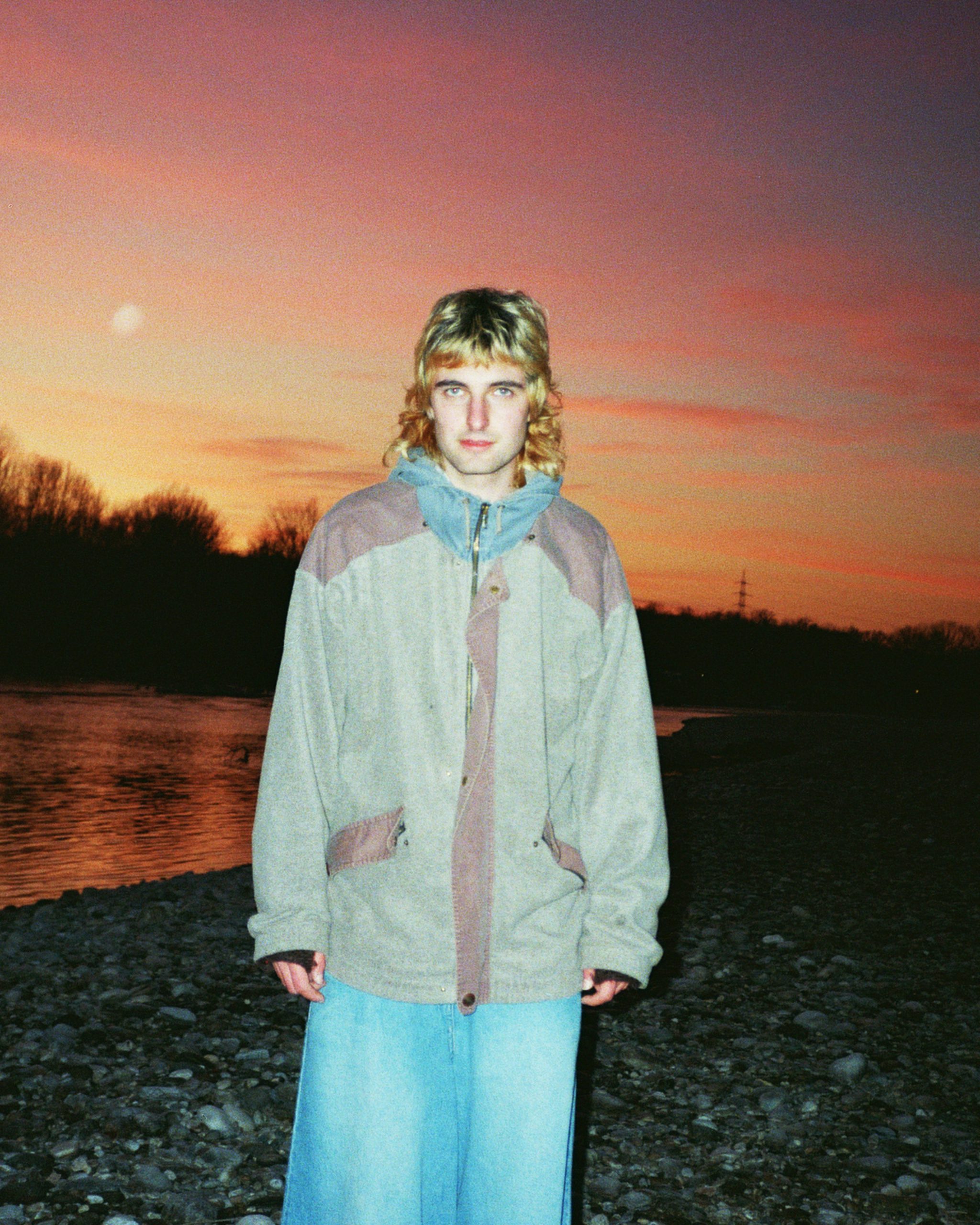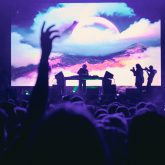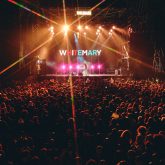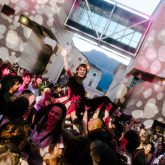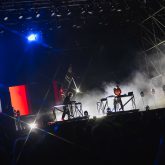Rome comes alive again beneath the transparent dome of La Nuvola by Fuksas, a futuristic cloud of steel and glass that, for the very first time, opens its doors to music. Here, on September 12 and 13, 2025, the fourteenth edition of Spring Attitude Festival takes shape—a sensitive map of contemporary sound. Two days that weave together electronic, indie rock, alt-pop, and experimentation in a seamless, flowing rhythm: where sonic research coexists with accessibility, and music expands into a total, immersive, and profoundly collective experience.
If Bicep and Apparat guide the audience into hypnotic visions on the first night, the following day becomes a kaleidoscope of colors and moods with L’Impératrice, Altın Gün, and Ellen Allien, tracing paths that oscillate between psychedelic reverie and futuristic clubbing. Yet, Spring Attitude is never just about big names—it is, above all, a laboratory of languages, a meeting point where emerging voices, intimate narratives, and boundary-breaking experimentations intertwine.
Among these voices, one of the most delicate yet incisive is faccianuvola. Suspended between songwriting and glitch electronics, their music feels like a whispered confession wrapped in light, capable of turning melancholy into luminous matter. A presence that does not overwhelm but envelops: quiet, elusive, and yet unforgettable—like a thought that lingers in echo.
We met faccianuvola to dive into this universe of sonic intimacy and dreamlike fragments: a world where fragility becomes strength, and where emotions diffuse like light in the early morning.
RITAMORENA ZOTTI: Your stage name evokes lightness and metamorphosis: in what way does the concept of the cloud reflect your artistic and personal vision?
FACCIANUVOLA: There wasn’t really much thought behind my stage name. I came across it in a book and thought it was a nice image. It came long before I even knew what kind of music I’d end up making. In a way, I’m slightly embarrassed about it—it feels a bit random—but maybe that randomness has something true in it too.
RZ: Your songs seem to stem from a cosmic and dreamlike imagery: which images or symbols most often guide your creative process?
F: It’s hard to pin down, because what survives in the end is very instinctive. I usually start from little stories, but then I hide them, I bury them under layers of sound and abstraction. What remains are fragments, small pieces that listeners can put together however they want, building their own picture. That openness matters more to me than the original story.
RZ: In your music, intimacy and universality coexist: how do you turn a private emotion into a shared language?
F: I think that behind personal experiences there are always emotions that belong to everyone. To find them, you just need to remove yourself from the words you’re writing. It’s almost like words lift off the ground, detach from your own story, and magically reveal a broader, more universal language.
RZ: Is there a sound, a noise, or a silence that you consider foundational to your musical journey?
F: Definitely the synth in Battiato’s Il Re Del Mondo (1984 Version). There’s something about its texture and atmosphere that stayed with me, almost like a hidden compass.
RZ: If you had to translate your music into a landscape, what natural or visionary place would it be?
F: Every song has its own setting, so it’s not easy to choose just one. But maybe I’d say an alpine lake at dawn, surrounded by a forest. Still water, a fragile light, silence—until the first ripples start to spread.
RZ: Your work merges melodic delicacy and electronic pulses: what do you think is the ideal balance between fragility and strength in your sound?
F: I don’t know if I’ve really found an “ideal” balance yet. Making this record was mostly instinct and play, even if there’s a lot of work behind it. In the end, it almost feels accidental that it turned out this way. But maybe that unpredictability is the real balance—something fragile that also carries a hidden strength.
RZ: How important are words in your songs compared to the soundscapes that envelop them?
F: For me, words are crucial. Producing is incredibly fun, and I love building atmospheres, but the real urgency is always in the words. That said, I don’t mind if someone listens without focusing on them. I think songs should remain open—you’re free to connect with whatever speaks to you first, whether it’s a lyric, a synth line, or just a mood.
RZ: If you had to imagine the future of faccianuvola in a single image, what would it be?
F: Lots of concerts, full of people, sharing the same space and energy. That’s what I hope for: a collective presence where music expands beyond me and becomes ours.
